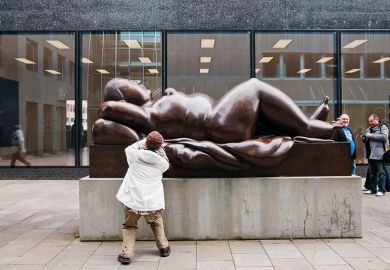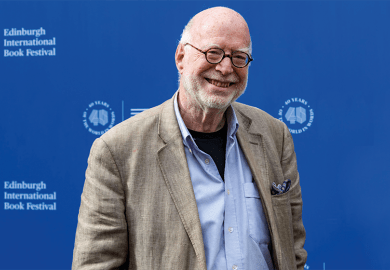It is all but 40 years since John Dunn's remarkable revisioning of John Locke reminded us that his great original rebutted Plato, and replaced justice with trust at the centre of the polity.
Since then it has mostly been the admirable class of public-spirited citizen-philosophers that emerged so improbably from the end of the linguistic tradition that has battled to keep faith with that mightily besieged and indispensable value. Annette Baier, the late, so very lamented and seriously funny Martin Hollis in his classic Trust within Reason, and above all, Onora O'Neill, in her 2002 Reith lectures, showed us beyond doubting that trust is being thinned out and urgently needs fattening up.
The trouble is that, as Marek Kohn's plain, direct, rather gracefully written new book contends, one cannot easily make trust into a policy project. Of course (as O'Neill argued), one could encourage hospitals or schools to do their bit better without putting them through all these damn silly accountability tests, but trust lives or dies in the texture of civic and sociable life, and it is that, as every sociological bromide teaches us, which has become atomised by prosperity to the point of attrition.
"Better be cheated a few times than never to trust," said Dr Johnson, and Kohn's excellent chapter headings indicate his readiness to state the obvious and to stand up nobly for blunt honesty and the common good (when did you last see that splendid phrase in the title of a book for fairly common readers?). "Through thick and thin" (his two types of necessary trust), "The goodwill of the people" (a realistic account of the limitations of popular energy in sustaining mass movements - Solidarno?? couldn't last), "Leaving the door unlocked" (a fine reminder of the importance of equality to trust) - such chapters speak straight to the moral concerns of a society, and one can only wish that Kohn could be heard beyond the little constituency of monograph readers.
One might prefer that he omitted those bits of his intellectual tradition that lead him to evolutionary disquisition on trust among primates, and once or twice his plain nutritious prose lapses into coarseness ("As long as A scratches B's back ... "). Nor has he anything to say on the extent to which the poisonous mendacities of the press (all of it - red top, broadsheet, yellow) in search not of truth but of circulation daily do so much to destroy trust, let alone the decent sympathies that are its natural food.
It's hard also to see that there is much to be made of his several pages evaluating the significance of assorted surveys on whether nations differ in their degrees of trustingness. But nor does he, it turns out, as he notes the vacuity of the pollsters' questions ("how much do you trust people?" - shall we have a five, a fifteen, a fifty-point scale?). It is, however, certainly the case that, in one of his key instances, Italians trust only their families, and as The Godfather so unforgettably portrayed it, that trust lasts only until mother died, whereas, say, the Swiss, with an assault rifle in one house in four, trust each other, their cuckoo clocks and their Government as well.
Perhaps there was more for Kohn to make of cultural comparisons, with history books in hand rather than market research. But this is a deliberately brief book, and one cannot put it down unstrengthened nor unenlightened, nor without being darkened by dread for our future.
Trust: Self-Interest and the Common Good
By Marek Kohn. Oxford University Press. 160pp £10.99. ISBN 9780199217915. Published 26 June 2008
Register to continue
Why register?
- Registration is free and only takes a moment
- Once registered, you can read 3 articles a month
- Sign up for our newsletter
Subscribe
Or subscribe for unlimited access to:
- Unlimited access to news, views, insights & reviews
- Digital editions
- Digital access to THE’s university and college rankings analysis
Already registered or a current subscriber? Login



